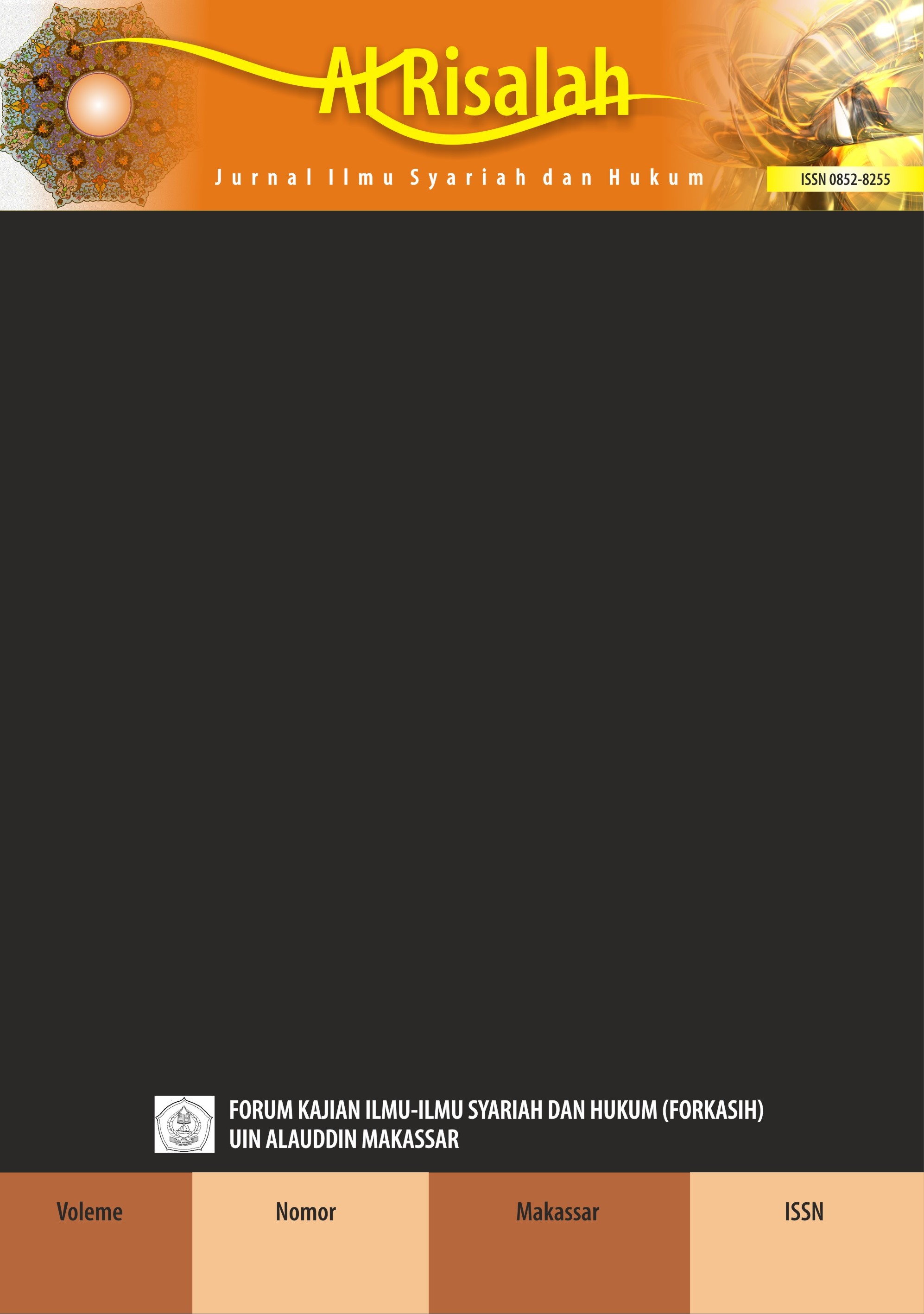CERMINAN LEGITIMASI PEMERINTAHAN ISLAM DI MASA PANDEMI
Abstract
This paper is an attempt to make a comparison between the Islamic government and the Jokowi government in dealing with a pandemic. By using descriptive explanatory methods to solve the problem of popular support to the government through the granting of legitimacy to power. The long journey of the Islamic government in the historical stage illustrates the solidity and expertise of the rulers to win the sympathy of the people. The Prophet's time was the beginning of the Islamic government in which the Prophet played two functions; as head of the State and holder of the highest religious authority. The two forces were united in the Prophet until his death and continued by his companions afterward, but the pattern of the Prophet's power was no longer the same as his companions. When friends hold the reins of power, they must try to win the sympathy of the people to get the legitimacy of power. That is why religious languages are always maintained for generations to maximize the function of the authorities as holders of religious authority. Facing a pandemic, two things must always unite, namely; the full authority of the government and religious authority to get the legitimacy of power. The purpose of writing is to provide input to the government to win the hearts of the majority Muslim population to gain the legitimacy of their power and be a strong grip of the government is facing the co-19 pandemic
References
A.J. Wensinck, Mu’jam Mufaḥras Li Alfāẓ al-Hadīṡ al-Nabawi (Leiden: E.J. Brill, 1936)
Abū ‘Abdillāh Muḥammad bin Ismā’īl al-Bukhārī, “Al-Jāmi’ al-Ṣaḥīḥ Li Abī ‘Abdillāh Muḥammad bin Ismā’īl al-Bukhārī” (Kairo: Maktabah al-Salafiyah, 1980)
Afifiyah, Sitti, “Pandemi Corona dan Kisah Wabah Penyakit Zaman Nabi,” Tagar.id untuk Indonesia (Jakarta, 2020)
Akeel Bilgrami, Secularism, Identity, and Enchantment, 1st ed. (London: Harvard University Press, 2014)
Alyanak, Oğuz, “Faith, Politics and the COVID-19 Pandemic: The Turkish Response,” Medical Anthropology: Cross Cultural Studies in Health and Illness, 00.00 (2020), 1–2 <https://doi.org/10.1080/01459740.2020.1745482>
Ashraf, Hamid, Ahmad Faraz, Md Raihan, dan Sanjay Kalra, “Fighting pandemics: Inspiration from Islam,” JPMA. The Journal of the Pakistan Medical Association, 70 3).5 (2020), S152–56 <https://doi.org/10.5455/JPMA.34>
Conrad, Lawrence I, “Ta ’ Un and W ’ Aba ’,” Social History, 25.3 (2013), 268–307
Darmawan, Dadang, Deni Miharja, Roro Sri Rejeki Waluyajati, dan Erni Isnaeniah, “Sikap Keberagamaan Masyarakat Menghadapi Wabah COVID-19,” Religious: Jurnal Studi Agama-Agama dan Lintas Budaya, 4.2 (2020), 115–24 <https://doi.org/10.15575/rjsalb.v4i2.8596>
Elsa Catriana, “RI Dinilai Perlu Waspada Potensi Resesi Ekonomi Akibat Corona,” Kompas.com (Jakarta, 2020) <https://money.kompas.com/read/2020/03/19/162019026/ri-dinilai-perlu-waspada-potensi-resesi-ekonomi-akibat-corona>
Encep Faiz, “Kisah Khulafaur Rasyidin Umar bin Khatab: Obat Penyakit Mematikan ada Pada Sabda Nabi,” Mantra Sukabumi (Sukabumi, April 2020)
Firmansyah, Teguh, “No Title,” Republika.co.id, 2020 <https://republika.co.id/berita/qcj7fa377/bamusi-pdip-bukan-komunis>
Gumilar Rusliwa Somantri, “MEMAHAMI METODE KUALITATIF,” Makara, Sosial Humaniora, 9.2 (2005), 57–65
Hadi, Kisno, “LEGITIMASI KEKUASAAN DAN HUBUNGAN PENGUASA-RAKYAT DALAM PEMIKIRAN POLITIK SUKU DAYAK MA’ANYAN,” Jurnal Kawistara, 8.1 (2018), 46 <https://doi.org/10.22146/kawistara.28082>
Kristo, Fino Yurio, “Pejabat China: COVID-19 Sudah Lama Ada, Bukan dari Pasar Wuhan,” Detik.com, 2020
Kuru, Ahmet T, Secularism and State Policies Toward Religion The United States, France, and Turkey, ed. oleh Kenneth D. Wald David C. Leege, 1st ed. (New York: Cambridge University Press, 2009)
Michael W. Dols, “The Second Plague Pandemic And Its Recurrences In The Middle East: 1347-1894,” Journal Of Economic and Social History of the Orient, 22.2 (1979), 162–89
Muhammad Subarkah, “Deus Abscond: Penguasa Tersembunyi dari Pandemi COVID-19,” Republika.co.id (Jakarta, 2020) <https://republika.co.id/berita/qagl8k385/emdeus-abscondem-penguasa-tersembunyi-dari-pandemi-covid19>
“MUI Ajak Ormas Islam Dukung Kebijakan Jokowi Atasi Corona,” CNN Indonesia, 2020
Mushodiq, Muhamad Agus, dan Ali Imron, “Peran Majelis Ulama Indonesia Dalam Mitigasi Pandemi Covid-19 (Tinjauan Tindakan Sosial dan Dominasi Kekuasaan Max Weber),” SALAM: Jurnal Sosial dan Budaya Syar-i, 7.5 (2020) <https://doi.org/10.15408/sjsbs.v7i5.15315>
Nanda Perdana, “Berikut 9 Poin Fatwa MUI Sikapi Wabah Virus Corona di Indonesia,” Merdeka.com (Jakarta, 2020)
Nur Azizah, “Mahfud Tanggapi Keluhan MUI Terkait Penutupan Masjid,” medcom.id, 2020
Rayful Mudassir, “MUI Kritik Pemerintah Soal Penutupan Masjid,” Bisnis.com, 2020
Saubani, Sapto Andika Candra/ Red: Andri, “Jokowi Umumkan Dua Kasus Pertama Positif Corona di Indonesia,” Republika.co.id, 2020
Society, American Oriental, “Plague in Early Islamic History Author ( s ): Michael W . Dols Published by : American Oriental Society Stable URL : http://www.jstor.org/stable/600071 . PLAGUE IN EARLY ISLAMIC HISTORY,” 94.3 (2013), 371–83
TB. Massa Djafar, “Covid 19 Ancam Legitimasi Kekuasaan Jokowi?,” telusur.co.id, 2020
Umar, Subehan Khalik, “Studi Kritis Terhadap Respon Majelis Ulama Indonesia (Mui) Tentang Pemanfaatan Media Sosial Dalam Bermuamalah,” Al Daulah : Jurnal Hukum Pidana dan Ketatanegaraan, 7.1 (2018), 39–50 <https://doi.org/10.24252/ad.v7i1.5463>
Copyright (c) 2020 Al-Risalah Jurnal Ilmu Syariah dan Hukum

This work is licensed under a Creative Commons Attribution-NonCommercial 4.0 International License.


